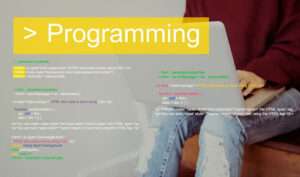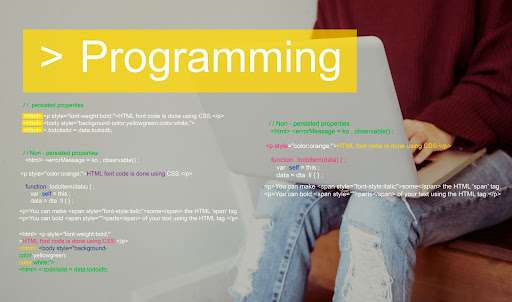In today’s digital era, programming is a paramount skill, leading organizations to prioritize its assessment early in the recruitment process. “Technical Programming Skill Evaluation Questions” offer an effective means to evaluate a candidate’s expertise. This overview underscores the value of a solid programming skills test, emphasizing the importance of technical assessment questions. These questions not only test theoretical knowledge but also measure how candidates tackle real-world challenges using their programming acumen.
The Imperative of Programming Skills Tests
As the technology sector booms, a rising tide of individuals is drawn to programming. Yet, not all are equally adept. Consequently, programming skills tests have become indispensable during hiring. Their significance stems from several key reasons:

Knowledge Depth: While knowing programming syntax is fundamental, applying it to solve complex, real-world challenges is paramount. A well-designed test offers insights into how deeply a candidate understands and can utilize their knowledge.
Practical Experience: Theoretical knowledge is foundational, but programming is inherently practical. Tests can discern candidates who’ve not only studied programming but have also rolled up their sleeves and delved into actual coding projects.
Efficiency: Time is often a constraint in these tests, emphasizing not just the correctness of a solution but the speed and efficiency with which a candidate can arrive at it. This mirrors real-world scenarios where timely solutions are vital.
Adaptability: In our ever-evolving tech landscape, the ability to adapt is crucial. The best tests incorporate unfamiliar challenges, pushing candidates to demonstrate their versatility and willingness to learn.
In essence, as programming emerges as a dominant career choice, having a structured mechanism to sift through candidates’ capabilities is essential. Programming skills tests serve this very purpose, ensuring hires are not only knowledgeable but also practical, efficient, and adaptable.
Designing Impactful Technical Assessment Questions
Technical assessments in the realm of programming should transcend mere recollection of concepts. Their essence lies in evaluating how candidates apply their knowledge. Effective design of these questions is paramount to truly gauge an applicant’s worth. Below is an elucidation on the creation of such questions:
Mimic Reality: Foremost, the questions must resonate with challenges that developers and programmers encounter daily. By mirroring real-world problems, the assessment ensures that candidates are not just theoretically competent but are also pragmatic in their problem-solving approach. This checks their readiness to face actual job scenarios rather than just their textbook knowledge.
Diverse Complexity: The assessment must cater to a spectrum of complexities. A balanced inclusion of elementary, intermediate, and intricate questions offers a panoramic view of the candidate’s prowess. While basic questions can probe their foundational knowledge, intricate ones test their expertise and perseverance, painting a holistic picture of their proficiency.
Balancing Theoretical & Practical: Hands-on coding challenges are undeniably vital. They offer insights into the candidate’s coding habits, problem-solving techniques, and debugging skills. However, an equally significant portion should be dedicated to theoretical questions. These ensure that the candidate possesses a firm grasp over the rudiments of programming, the theories, and concepts that form its backbone. It’s akin to verifying if a builder knows not only how to construct a house but also understands the principles behind its architecture.
Encourage Ingenuity: Incorporating open-ended questions can be a game-changer. These types of questions refrain from pigeonholing candidates into predefined answers, granting them the liberty to craft unique solutions. It’s an invitation for them to showcase creativity, lateral thinking, and even their capacity for innovative problem-solving.
To encapsulate, the objective of technical assessments isn’t just to sieve out candidates based on their ability to regurgitate knowledge. It’s about understanding their depth, versatility, and approach to problem-solving. A meticulously crafted assessment, thus, becomes an invaluable tool in the recruitment arsenal, ensuring that hires are not only skilled but are also thinkers, innovators, and genuine problem solvers.
Unpacking the Essence of Programming Questions
Programming questions form the crux of a technical evaluation, offering a lens into how well a candidate translates theoretical knowledge into tangible solutions. To truly assess a coder’s acumen, the test should be comprehensive, touching various facets of programming. Here’s a deeper dive into the nuances of creating such an assessment:

Probing Algorithmic Proficiency: At the core of every piece of software or application lies a web of algorithms. Algorithm-centric questions, thus, become imperative. They shed light on a candidate’s prowess in logical reasoning and their ability to formulate efficient algorithms, a true testament to their foundational understanding of programming.
The Art of Debugging: Even the most seasoned programmers might write codes with glitches. But what sets an expert apart is their ability to swiftly identify and rectify these errors. By introducing debugging scenarios, where candidates are handed codes replete with intentional mistakes, their debugging skills come to the fore. It’s not just about rectifying the code but understanding the thought process behind the errors and showcasing meticulous attention to detail.
Real-time Code Crafting: A substantial aspect of a coder’s job is to write functional, efficient code under time constraints. Questions that necessitate real-time coding are pivotal as they mirror actual job scenarios. It gauges not only the candidate’s coding speed but also the quality, efficiency, and adaptability of their solutions.
Linguistic Specificity: The world of programming boasts a plethora of languages, each with its unique syntax and application. Depending on the job profile and the company’s tech stack, it’s crucial to incorporate language-specific questions. Whether it’s Python’s versatility, Java’s robustness, or JavaScript’s ubiquity in web development, tailoring questions to specific languages ensures that the candidate’s expertise aligns with the role’s requirements.
Navigating Databases: As data continues to be the gold of the digital age, back-end skills become increasingly paramount. Evaluations should, therefore, encompass questions on database management, whether it’s crafting precise SQL queries or designing efficient database structures. This component checks for proficiency in handling, retrieving, and organizing vast amounts of data, a pivotal skill for any back-end role.
The Way Forward
As the tech world evolves, the metrics for assessing programmers will continually shift. However, the core principle remains: ensure that candidates can solve real-world problems using their programming knowledge.
Programming tests should never be about intimidation but about validation. They are tools to ensure that the right candidate with the right skills gets the job. The balance of technical assessment questions and programming questions ensures a comprehensive overview of a candidate’s abilities.
By investing time in curating these questions, organizations can ensure a smoother recruitment process, higher employee retention, and, ultimately, a more robust technical team. After all, the right team can drive innovation, and in the tech world, innovation is the key to success.
Read more about:
Assessing Dependent Personality and Skills with an AI-based tool
What Exactly Does an AI-Based Talent Assessment Test Refer To?
The Complete Guide to Skill Assessment Tests for 2023
Conclusion
In conclusion, “technical skills assessments” are more than a mere formality. They play a crucial role in the hiring process, bridging the gap between theoretical understanding and practical application. For recruiters or educators, grasping this equilibrium is essential for making well-informed choices, advancing the organization, and fostering a robust tech ecosystem.



